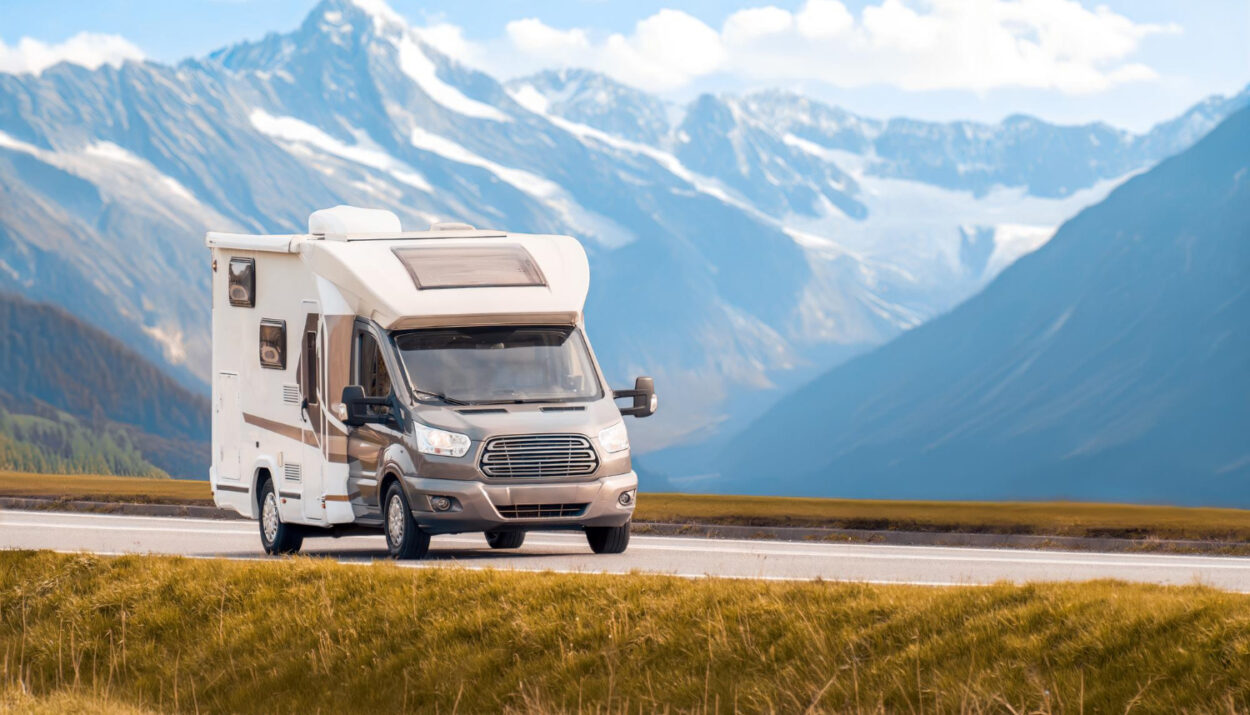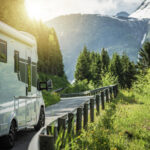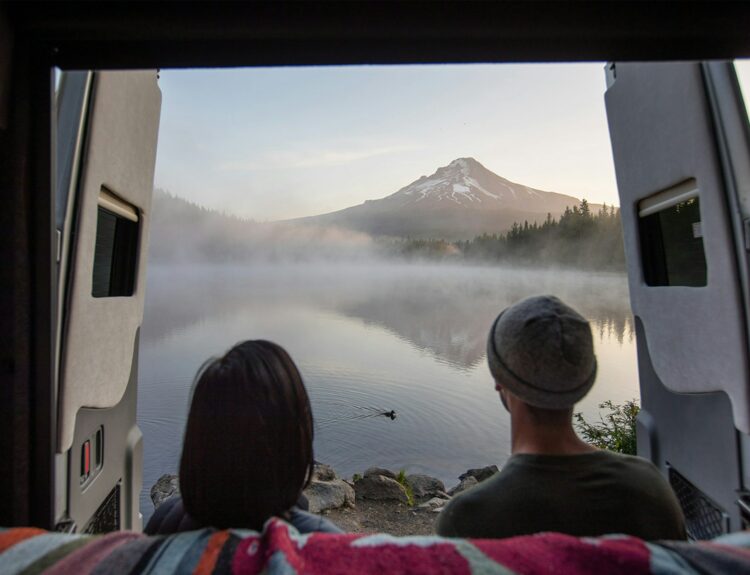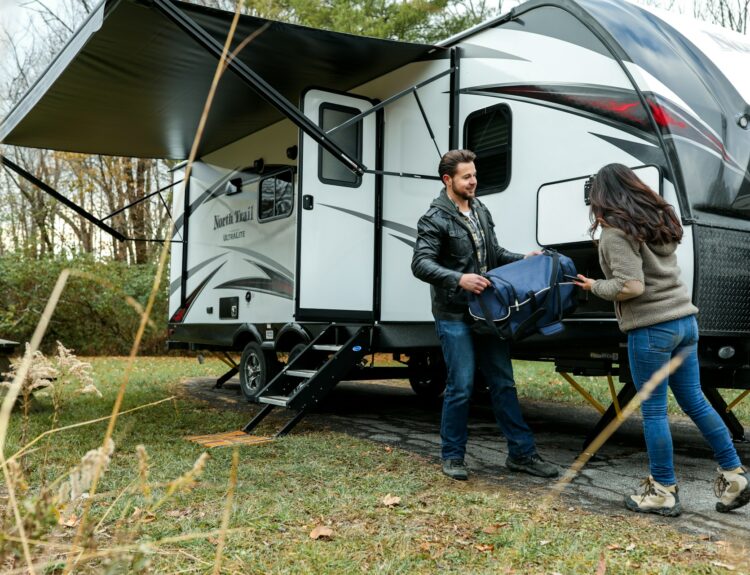You can hit the road and explore beautiful destinations at your pace with RV travel. Whether you’re a seasoned traveler or a first-time RVer, preparing for a road trip requires careful planning and an understanding of the basics. From choosing the right RV to ensuring your trip is safe and enjoyable, there are several things you need to consider before hitting the open road. This is where RV travel 101 comes in, offering essential tips and guidance for a successful adventure.
In this guide, we’ll cover everything you need to know to make your next RV trip a success. From packing essentials to planning your route, we’ve got you covered with expert tips and advice to ensure smooth and stress-free RV travel.
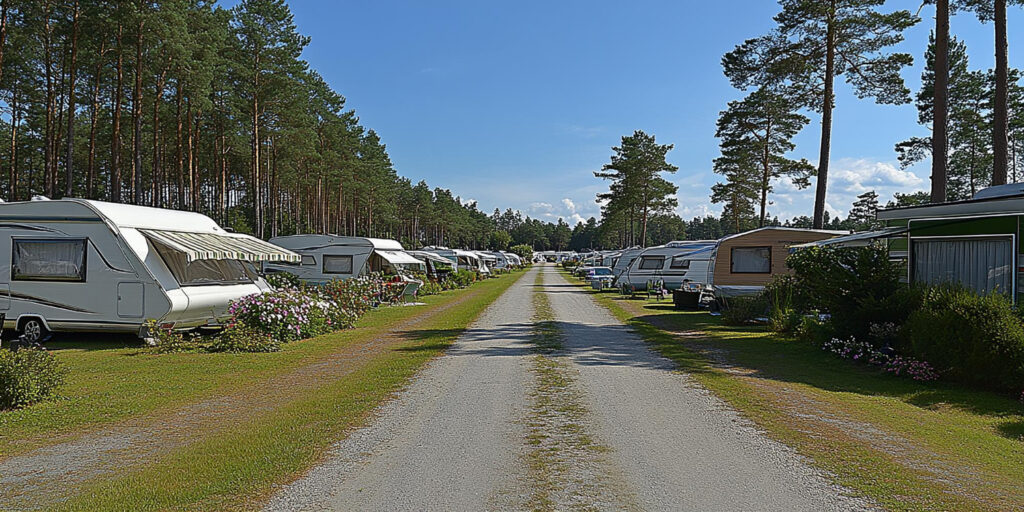
Choosing the Right RV for Your Trip
Know Your RV Types
Before embarking on an RV adventure, it’s important to decide the right type of RV that suits your needs. RVs come in various shapes and sizes, each designed for different types of travelers. Let’s take a brief look at the main types:
- Class A: These are the largest motorhomes, offering luxurious amenities like full kitchens, bathrooms, and living areas. Ideal for long trips or full-time RVers, but their size can make them harder to maneuver.
- Class B (camper vans): smaller than Class A, these are great for couples or small families. They’re easier to drive and park, but they offer fewer amenities.
- Class C: A mid-sized RV that combines some of the luxury of Class A with the drivability of Class B. Often built on a truck or van chassis, it’s perfect for families who want comfort without the bulk.
- Towable RVs include travel trailers, fifth wheels, and pop-up campers. These need to be towed by a vehicle but offer a more flexible setup.
Renting vs. Owning
If you’re new to RV travel, you may wonder whether it’s better to rent or buy an RV. For first-time or occasional trips, renting may be the more affordable and convenient option. However, if you plan to hit the road regularly or want to live the RV lifestyle full-time, owning an RV gives you the flexibility to travel whenever you want.
Consider your travel habits, budget, and long-term plans before deciding. Many people start by renting an RV to get a feel for the lifestyle before committing to a purchase.
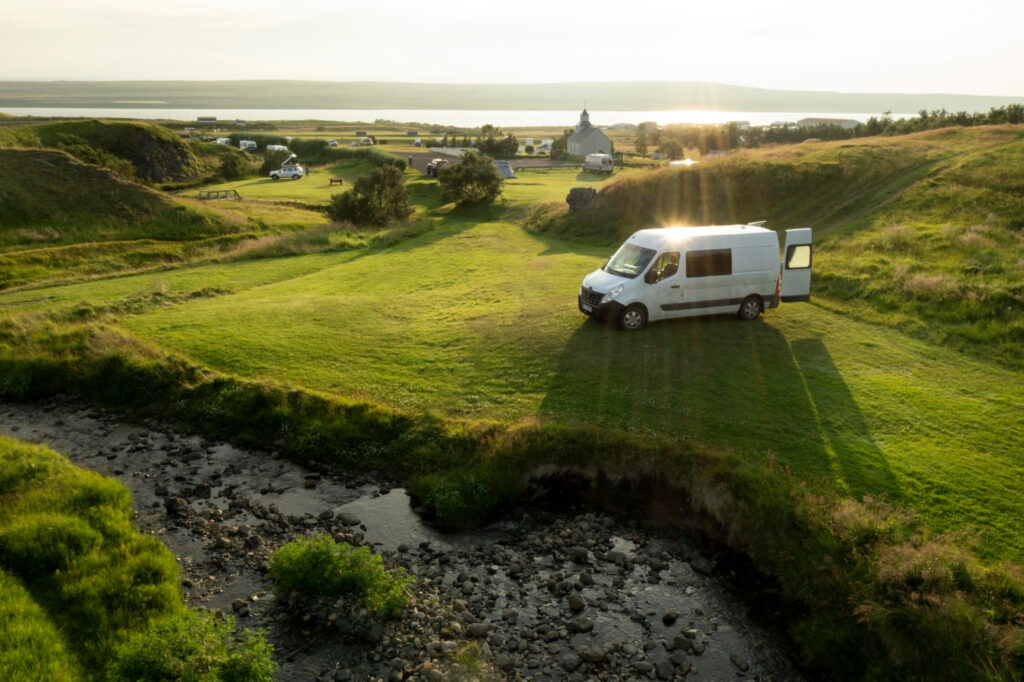
Planning Your Route and Destinations
Researching Campgrounds and RV Parks
A key aspect of RV travel is finding the right places to stay. RV parks and campgrounds come in various styles, ranging from basic sites with minimal amenities to luxury resorts that offer pools, Wi-Fi, and entertainment.
To find the best spots:
- Use apps like RoverPass to search for RV parks and campgrounds based on your route. You can filter for amenities, prices, and availability.
- Read reviews from other travelers to get an idea of what to expect.
- Make reservations in advance, especially if you’re traveling during peak seasons. Some popular parks fill up quickly, and you don’t want to arrive without a spot.
Mapping Out Your Journey
Once you’ve chosen your destinations, it’s time to map out your route. Consider how long you want to drive each day and what sights you’d like to see along the way. Plan for rest stops, fuel breaks, and time to explore.
- Use GPS apps designed for RV travel, like RV LIFE Trip Wizard or Google Maps, which allow you to avoid low bridges and narrow roads that aren’t suitable for larger vehicles.
- Be flexible! One of the perks of RV travel is the ability to change plans on the go. If you discover a hidden gem or want to extend your stay in a beautiful area, your RV gives you the freedom to do so.
Safety Tips for the Road
Safety should always be a priority when traveling by RV. Make sure your vehicle is in top condition before setting off on your trip.
- Pre-trip maintenance: Check tire pressure, oil levels, brakes, and lights. Make sure your RV’s water and propane systems are working properly.
- Driving an RV: RVs handle differently than regular cars. Take it slow, allow for extra stopping distance, and be mindful of height and weight restrictions. Practice driving in wide-open areas if you’re new to RVing.
- Emergency kits: Always have an emergency kit on board that includes a first-aid kit, flashlight, batteries, tire repair tools, and basic repair supplies.
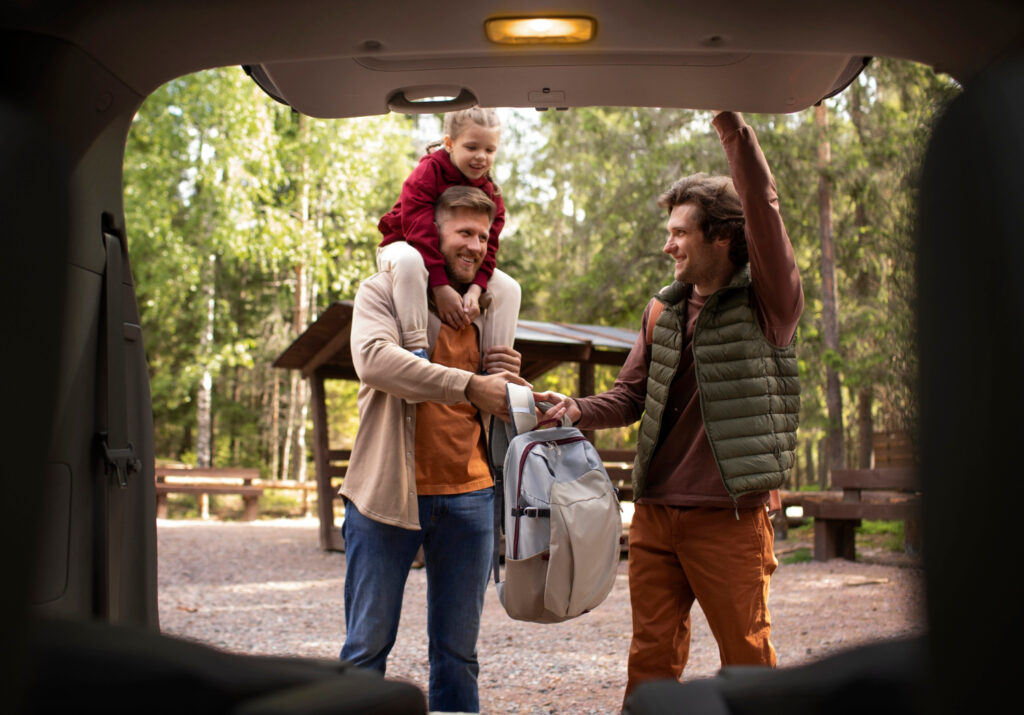
Packing for Your RV Trip
Essential Gear for Your RV Adventure
Packing for an RV trip is a bit different from packing for a regular road trip or vacation. Since you’ll have access to a kitchen, bathroom, and living space, you can bring more comfort items and gear. However, it’s important not to overpack, as space is limited.
Here are some essentials you’ll need:
- Kitchen supplies: cooking utensils, pots and pans, reusable dishes, and food storage containers. Bring ingredients for easy-to-make meals.
- Bedding and linens: pillows, blankets, and sheets for sleeping. Don’t forget towels and washcloths for the bathroom.
- Outdoor gear: camping chairs, a portable grill, and outdoor games for when you’re parked at a campground.
- Clothing: Pack for the weather, but remember that RVs often have limited closet space, so stick to versatile pieces that can be layered.
Food and Meal Planning
Meal planning is one of the joys of RV travel, as you can cook your meals rather than relying on fast food or restaurants. Before you leave, create a meal plan for the trip, including easy-to-make breakfasts, lunches, and dinners.
Consider these tips:
- Stock your pantry: Bring non-perishable items like pasta, rice, canned goods, and snacks.
- Prep ahead: chop vegetables, marinate meats, or even pre-cook meals to save time while you’re on the road.
- Cook outside: On warm evenings, fire up the grill or use a portable stove to enjoy dinner under the stars.
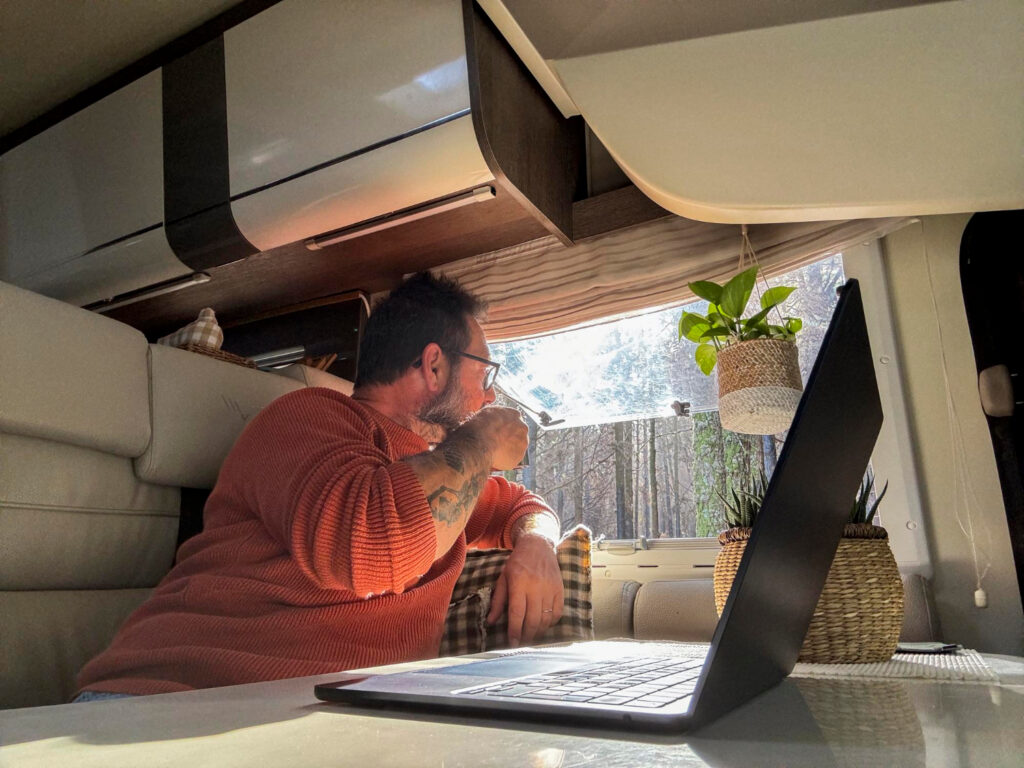
Staying Connected and Entertained on the Road
RV-Friendly Tech and Gadgets
Even though you’re hitting the road to get away from the hustle and bustle, staying connected can still be important. Whether you need to work remotely, keep the kids entertained, or simply stay in touch with family, there are plenty of gadgets to keep you connected.
- Wi-Fi hotspots: Invest in a mobile hotspot for reliable internet access, especially if you’ll be traveling to remote areas. You can also look for campgrounds with Wi-Fi, but the connection may not always be strong.
- Entertainment systems: Bring portable devices like tablets, laptops, or gaming consoles to keep the family entertained during downtime. Streaming services like Netflix or Disney+ can be enjoyed if you have a strong internet connection.
Exploring and Unplugging
While technology is helpful, one of the joys of RV travel is the chance to unplug and connect with nature. Take time to enjoy your surroundings by hiking, biking, fishing, or simply relaxing at your campsite. Encourage your family to spend time outdoors and take a break from screens.

Frequently Asked Questions
1. Do I need a special license to drive an RV?
In most cases, you don’t need a special license to drive an RV, unless you’re operating a huge motorhome that exceeds certain weight limits. Always check your state’s requirements before setting off.
2. How much does it cost to stay at an RV park?
RV park fees vary depending on the location and amenities. On average, you can expect to pay between $25 and $80 per night. Luxury RV resorts may charge higher rates, especially during peak travel seasons.
3. What should I do if my RV breaks down on the road?
It’s a good idea to have roadside assistance for your RV. Services like Good Sam Roadside Assistance offer plans specifically for RVers, providing help with towing, tire repair, and more.
4. How do I find RV-friendly gas stations?
Use apps like GasBuddy to find gas stations that are RV-friendly and have enough space for larger vehicles. Plan your refueling stops in advance to avoid tight, crowded stations.
5. Can I camp anywhere in my RV?
While some areas allow for boon docking (camping without hookups on public land), you’ll typically need to stay at designated campgrounds or RV parks. Always check local regulations to ensure you’re camping legally.
Now that you know the essentials, you’re ready to hit the road with confidence! For more tips on RV living and trip planning, keep exploring our blog for valuable resources to enhance your next RV adventure.

